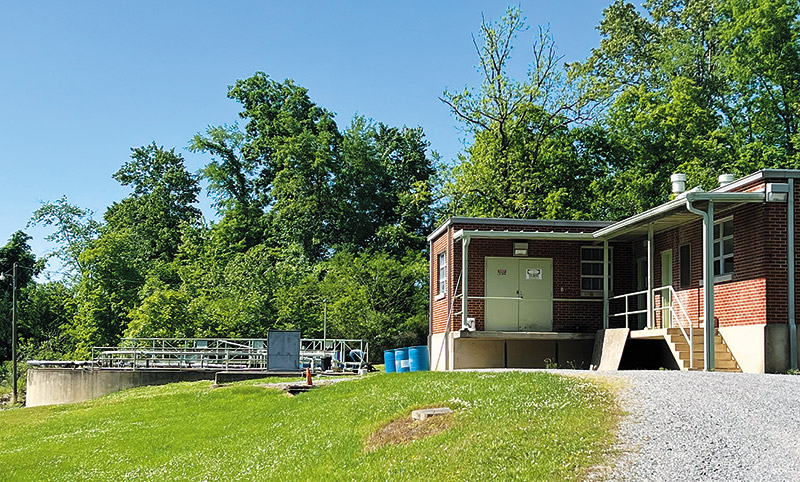Norris Council approves plan to upgrade sewers

The Norris wastewater treatment plant sits on this site off East Norris Road near Ander- sonville Highway in Norris. (photo:G. Chambers Williams III )
The council also approved the wording of a letter Mayor Chris Mitchell planned to send to the Tennessee Department of Environment and Conservation in response to a “director’s order” from the department that found the city in violation of water-quality regulations concerning discharges from the city’s sewage-treatment plant.
A special meeting was needed to approve the city’s response to the notice of violation in time to meet the state’s May 17 deadline for the response.
The city hired Cannon & Cannon Consulting Engineers of Knoxville to create the plan to remedy the violations.
That plan, submitted to the council during the regular May council meeting last Monday, called for making the required repairs beginning as soon as possible, with an estimated completion date of late 2028.
Under the engineers’ plan, the price for the bulk of the work was estimated to be $5.488 million, with a potential bill as high as $6.6 million. That does not include the possibility the city might need to install a 750,000-gallon holding tank for stormwater runoff, at an additional cost of more than $2.1 million.
The money to pay for the upgrades will come from a “combination of grants, debt and increased sewer rates” to customers, Mayor Chris Mitchell has said.
The engineers are still testing the sanitary sewer system to find leaks and other problems that allow stormwater to enter the system. Some of that work, including smoke tests, will be ongoing for possibly several more months.
Norris is under pressure from the Division of Water Resources to fix the stormwater runoff issue, or end up paying $23,460 in fines – or more -- for violations of state regulations regarding discharge of polluted water into Buffalo Creek.
The city already has paid $4,692 of that fine to the state, and would be on the hook for the rest unless its remediation plan is approved by the state and carried out as scheduled.
The city contracted with Cannon & Cannon for $300,000 to study the sanitary sewer system to find out where the stormwater is entering the system during heavy rains, which can add a million gallons of water per day to the system and overwhelm the treatment plant, just off East Norris Road near Andersonville Highway.
Under state law, the city cannot use property taxes to fund the repairs, and also may not add any of those expenses to water bills.
Instead, the city must get grants and/or borrow money to pay for the upgrades, and then pay off the loans using higher sewer rates for customers. About three-fourths of Norris water customers – around 600 – also have sewer service, and would have to pay the higher sewer rates.
The estimates in the plan submitted to the council Monday night don’t include a possible replacement of the city’s aging wastewater treatment plant, which was built in 1936 and last upgraded in the 1960s.
The sewage treatment plant is designed to process up to about 200,000 gallons of wastewater per day, and normally gets about 100,000 gallons per day. But when it rains, that can push the flow into the plant beyond 1 million gallons a day.
Most of that gets bypassed around the treatment plant and discharged into Buffalo Creek, at a point south of Andersonville Highway, near the Chunky Monkey restaurant.
While that dumped water does get treated with chlorine to get rid of bacteria, the chemical pollutants in it are not removed, the Water Commission said.
The mayor received a “Director’s Order and Assessment” from TDEC’s Division of Water Resources in February detailing the violations, which allegedly occurred from May 1, 2019, through Nov. 30, 2021.
City officials noted that the pollution problems are only with the sewer system, and have nothing to do with the city’s drinking water, which has long been considered to be of outstanding quality.
“This is not about your drinking water,” Mitchell said earlier. “Your drinking water is clean.”


